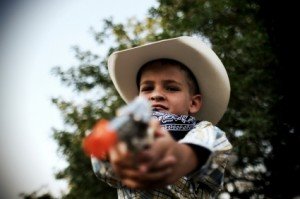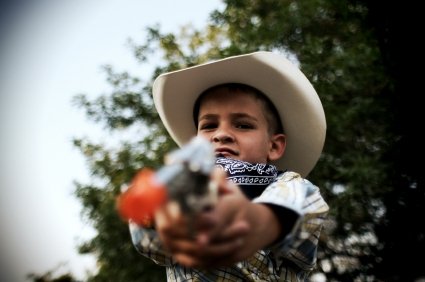[fblike style=”standard” float=”left” showfaces=”true” verb=”like” font=”arial”]
By Fabian Carballo –

[dc]A[/dc]fter a tragedy like the shooting at Sandy Hook four months ago many debates tend to unfold without the proper synthesis and evaluation. Many rush into action and say that something has to be done and that guns need to be controlled. Others say that it is too soon and that we must focus our attention on mental health and video games rather than guns themselves (1). In a gun control versus second amendment debate, it seems that there are no winners. The victims of each recent tragedy and their families are definitely not the winners. But should the debate regarding sensible gun laws in this country simply end?
Are more laws the answer?
Some second amendment advocates have said that there are many laws regarding guns in the books already. Some are asking why there should be more laws if no one will enforce them? In a recent CBS/ Vanity Fair poll, 65% of Americans felt that more gun laws won’t necessarily make America safer (2). Interestingly, the poll also stated, “Breaking it down by political party, more Republicans (44 percent) feel safer with a gun in the home than Democrats (20 percent)” (3). Also, More Democrats (37 percent) chose an alarm system to deter crime as opposed to a gun. Clearly, there are more than two sides to the issue but there is a political divide that encompasses two very different worldviews. There is a very different intent and purpose for both an alarm system and a fire weapon. What makes a person opt for an instrument of death-there is no other purpose for a gun-(unless you purposely try to miss while hunting) rather than an alarm?
Many of the anti-gun-control arguments have circled around the right to protect ourselves as Americans. As a Christian, I am more inclined to use an alarm rather than arming myself with full knowledge that I can take someone’s life. As a Christian I’ve tried to understand the conditions that drive people to steal. As a Christian, I’ve humbly come to understand that I am Christian first and an American second. Jesus tells us in Matthew chapter 5,
“But I tell you, do not resist an evil person. If anyone slaps you on the right cheek, turn to them the other cheek also. And if anyone wants to sue you and take your shirt, hand over your coat as well. If anyone forces you to go one mile, go with them two miles. Give to the one who asks you, and do not turn away from the one who wants to borrow from you.” (4)
In context of that chapter, Jesus made it clear that the Old Testament Judaic way of thinking that posited “An eye for an eye” is the extreme reaction to any action. The most I can do if someone injures me, is exactly the same level of force although I am exhorted to allow them to slap me in the other check. Conspiracy and paranoid theories of a government take over and an assailing of our individual rights notwithstanding, it seems that in light of Jesus’ teaching, a gun or the violence a gun is used for is completely unnecessary for a Christian. The long history of conscientious objectors and pacifist activists should be an example of the great lengths of sacrifice and accomplishment that an ethic of life, molded in Christ’s character, can demonstrate.
The Constitution, the Second Amendment and gun control is another discussion entirely. Let me describe an aspect of the current discussion that really worries me.
Class Rules: Your Teacher Has a Gun
Wayne LaPierre, the National Rifle Association’s president suggested that the only way to keep kids safe at school is to arm their teachers or guards at the schools. There are many problems with this logic. First, has it occurred to anyone that parents, teachers, and students might not feel comfortable going to a school where weapons may be hiding in plain sight? Second, if I am to be armed at all times as a teacher, what is the probability of a friendly fire accident? When I teach I move around the room a lot. Also, I trust that my students are doing their work when I turn my back or work with a student individually. Will a false move lead me to pull trigger? Will a disrespectful student that escalates into defiance merit “the gun treatment” from their teacher?
After the fact, we can always say we “felt threatened.” Will my students respect me more if I have a gun? What about elementary school children who grew up in a culture that glorifies guns? Will a first-grader know the difference between a toy and a gun that their teacher carelessly left on top of her desk? Hopefully none of these questions will need to be answered. More than likely, most educators would rather resign from the profession than have to transition from an imparter of knowledge to an imparter of armed authority. Forcing teachers to carry weapons is a gross violation of our religious freedom and it is a conversation that needs to end with inaction.
Class Rules Part Two: What Can Teachers Do?
As a history teacher, perhaps I have a larger responsibility to teach children about armed conflict and the millions of lives in our national history that have been taken by bullets. At the end of last semester, I had a choice to make. Normally, at the end of my World War I unit I do an interactive activity that simulates trench warfare. The desks in the classroom are pushed aside and used as barricades. The students are allowed three “bullets” which consist of crumpled line paper. Then they are assigned either a nation from the Central Powers or the Triple Entente. The trench warfare begins and the students hurl paper balls at each other until they are exhausted. At the point of exhaustion I emerge as a member of the Triple Entente and shoot nerf bullets from my nerf gun.
The students always look forward to this activity and this year was no exception. When Sandy Hook hit the news, it simply seemed inappropriate to proceed with the activity and it was cancelled. However, it still provided for a “teachable moment.” It occurred to me that what we can do as educators is shift the paradigm on cultural violence.
As a Christian I’ve never allowed my son to play with guns or pretend he has a gun. I have admonished my own children when they pretend play to be shooting someone or something. I never thought of killing as a game or something that should be glorified. In the same sense, as a high school teacher, I have to be equally conscious of the effects of glorifying violence in the classroom. United States History is full of violent episodes; it is full of gun deaths. If we, as responsible citizens, were the source of hundreds of years of history through which every decade our country was involved in armed conflict, we might experience the same cognitive dissonance the Winchester widow experienced. We might have to keep building rooms in our house 24/7 in order to house the “spirits” of all those who died at the hands of an armed killer. If the horrid results of imperialism and globalization are not enough parallel evidence that the West was won through violence, then what values will we have left to teach the future generations?
As the constant state of conflict in the Middle East demonstrates, violence begets violence. In order to tackle our culture’s problems with violence we need a generational shifting of ideas. The conversation may very well begin with me in a classroom discussing with my students why violence and death are not a game. It may also start with Christians who take Jesus’ teachings seriously and want to engage in radical pacifism. Only through the manifestation of love will hate cease to be.
###
(1) See TalkingPointsMemo.com http://livewire.talkingpointsmemo.com/entry/father-of-newtown-victim-applauds-nra-proposal-at?ref=fpb Accessed 4/3/2013
(2) See Newsmax: http://www.newsmax.com/US/poll-gun-laws-want/2013/03/04/id/493001 Accessed 4/3/2013
(3) See above.
(4) New International Version (NIV)
—
Fabian Carballo is a high school English and U.S. History teacher in Southern California.
